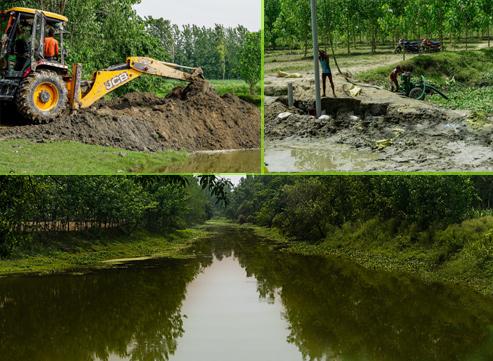Conservation of Water Resources: A Vital Step for a Sustainable Future

Water is the essence of life, underpinning every aspect of human civilization, from agriculture and industry to health and personal well-being. However, as the global population continues to surge and the climate crisis exacerbates water scarcity, the conservation of water resources has become a critical priority. Effective water management strategies are essential not only for sustaining life but also for ensuring environmental balance and supporting economic stability.
The Importance of Water Conservation
Water is a finite resource with no substitute, making its conservation paramount. Freshwater sources, which constitute only about 2.5% of the Earth's total water supply, are under immense pressure due to over-extraction, pollution, and climate change. By conserving water, we can mitigate these pressures, ensuring that clean water remains available for future generations. Moreover, efficient water use helps reduce the energy required for water treatment and distribution, contributing to lower greenhouse gas emissions and combating climate change.
Strategies for Water Conservation
1. Efficient Irrigation Practices: Agriculture accounts for approximately 70% of global freshwater use. Implementing efficient irrigation techniques, such as drip irrigation and rainwater harvesting, can significantly reduce water wastage. These methods deliver water directly to the plant roots, minimizing evaporation and runoff.
2. Urban Water Management: Cities can adopt various measures to conserve water, including repairing leaks in infrastructure, using water-efficient fixtures, and promoting greywater recycling. Urban planning that incorporates green spaces and permeable surfaces can also enhance groundwater recharge and reduce stormwater runoff.
3. Industrial Water Efficiency: Industries can implement water-saving technologies and practices, such as closed-loop cooling systems and water recycling processes. Regular audits and monitoring can help identify areas for improvement, ensuring that industrial activities are sustainable and water-efficient.
4. Public Awareness and Education: Raising awareness about the importance of water conservation is crucial. Educational campaigns can encourage individuals to adopt water-saving habits, such as turning off taps while brushing teeth, fixing leaks promptly, and using water-efficient appliances.
5. Policy and Regulation: Governments play a pivotal role in water conservation through the enactment and enforcement of water management policies. Regulations that limit water extraction, promote sustainable agricultural practices, and protect natural water bodies are essential for safeguarding water resources.
The Role of Technology in Water Conservation
Advancements in technology offer innovative solutions for water conservation. Smart irrigation systems, equipped with sensors and weather data, optimize water use in agriculture. Water-efficient appliances and fixtures, such as low-flow toilets and showerheads, help reduce domestic water consumption. Additionally, satellite monitoring and data analytics enable better management of water resources by providing real-time insights into water usage and availability.
Community Involvement and Grassroots Initiatives
Community involvement is vital for successful water conservation efforts. Grassroots initiatives, such as local watershed management groups and community-based rainwater harvesting projects, empower individuals to take collective action. By working together, communities can implement solutions tailored to their specific water challenges, fostering a sense of ownership and responsibility towards local water resources.
Conclusion
The conservation of water resources is not merely an environmental necessity but a fundamental aspect of sustainable development. As the pressures on our water systems intensify, the need for comprehensive and integrated water management strategies becomes ever more urgent. By adopting efficient practices, leveraging technology, and fostering a culture of conservation, we can secure a water-abundant future for all. The responsibility lies with each of us—governments, industries, communities, and individuals—to take proactive steps in safeguarding this invaluable resource.









Comments